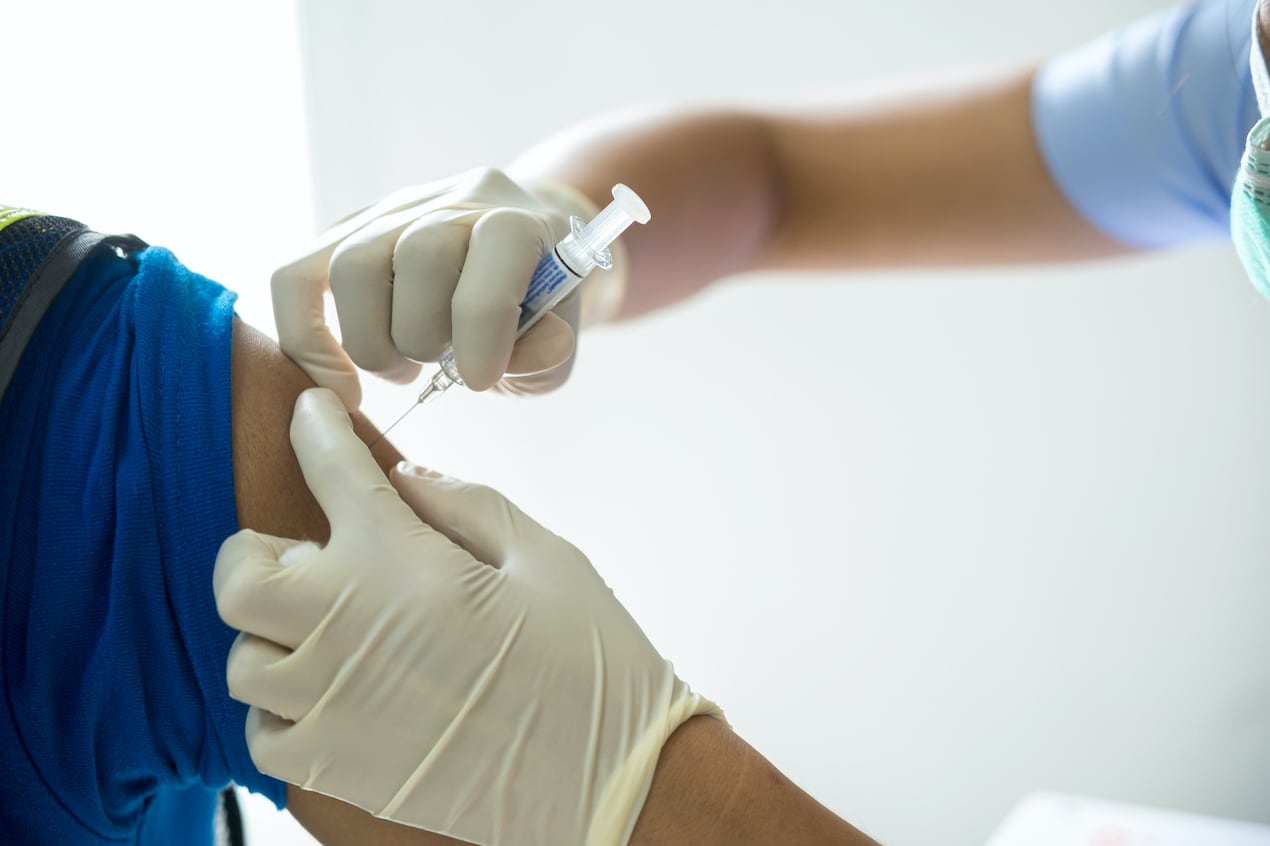Philadelphia teachers could begin receiving the COVID-19 vaccine the last week of January, the city’s health commissioner Dr. Thomas Farley confirmed Tuesday to Chalkbeat.
The city had originally anticipated vaccinating teachers beginning the first week of February, but the process of distributing the vaccine to health care workers in Phase 1A is ahead of schedule.
“We’ve always said that we are not going to wait until Phase 1A is complete” to begin the next phase, said Farley, who noted that there are still many health care workers who have yet to receive their shots. “We are looking to start vaccinating people in Phase 1B the last week of January, perhaps Jan. 25, which is a couple of weeks away.”
Teachers aides and school food service and facilities workers will also be eligible.
Teachers are now listed in the Phase 1B group, which comprises mostly frontline workers, such as first responders, transit workers, some retail and factory workers.
Also included in the next phase are those at a high risk of morbidity or mortality — including people who live and work in nursing facilities and group homes, people over the age of 75, and those with high-risk medical conditions.
The accelerated vaccine schedule is good news for teachers. But the city has not yet made decisions about which educators will get the vaccine first, said Dr. Caroline Johnson, the city’s deputy health commissioner.
“We have had discussions that have made it clear that we need to open access, not just to classroom teachers, but we have to look at this broadly across all the individuals in the schools who are serving the children,” Johnson said. “So we’re going to be looking at everyone in the schools who interacts with the students. And we will be including them in the vaccination planning.”
Johnson confirmed the city’s student access centers won’t likely be used as vaccine distribution sites, but that staff working at these centers would receive the vaccine alongside teachers.
The city’s health department announced on Tuesday 637 additional cases of COVID-19. That brings the number of confirmed cases to 98,215. Health officials also confirmed 37 additional fatalities, bringing the number of residents who have succumbed to the virus here to 2,640.
Even though the pandemic continues to rage, Mayor Jim Kenney and Farley are hopeful that school buildings will open for some students this school year.
“Practically, it seems not as sure that it will happen in the spring,” Kenney said. “But if we can get the teachers vaccinated, give them a little comfort to get back into the classroom and get the kids out of the house, off their computers, and into the classroom, I think that’s a win-win for everybody and a win for parents and the economy.”
But that’s contingent on school workers being vaccinated and other factors, he said.
Superintendent William Hite, Board of Education President Joyce Wilkerson, and teachers’ union President Jerry Jordan have all expressed confidence that some city schools would be able to reopen this academic year. Hite said last week that he would announce a reopening plan within the next “10 days or so.”
Farley noted that some of the city’s charter and parochial schools are now open. “I’m optimistic that we can get public schools open as well,” he said.







